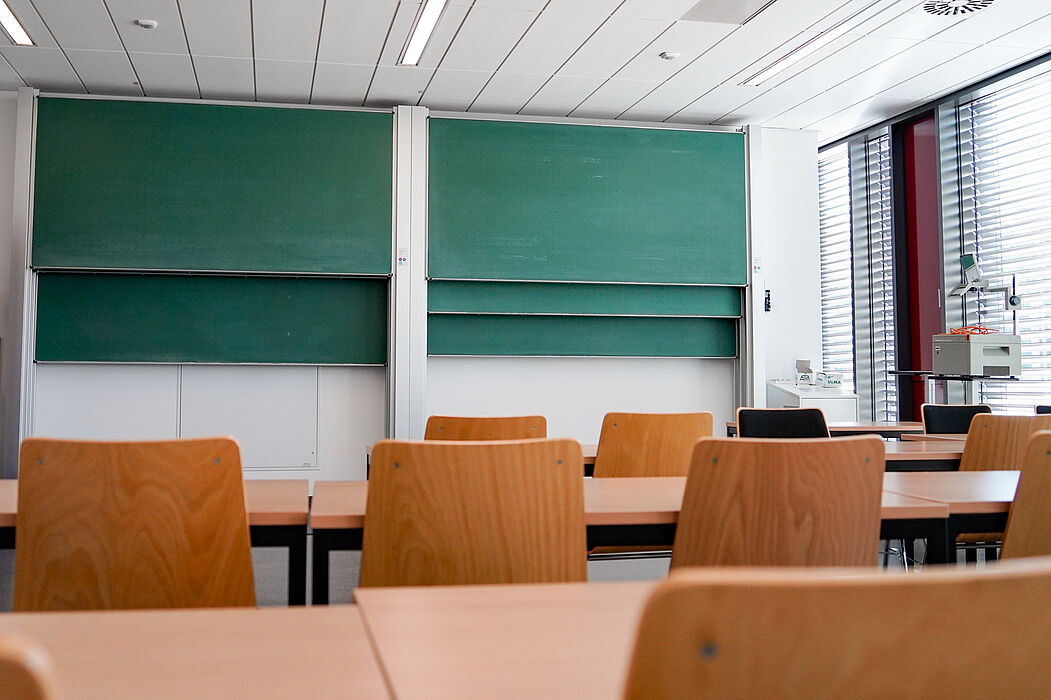Height-adjustable furniture, designated movement zones and more: sports students at Paderborn University have developed recommendations for action for movement-orientated classroom design in primary schools as part of a seminar. They have now presented these to experts from various sectors - from schools, trades and architecture to municipal administration - and discussed them with them. The next step is to incorporate the results into everyday school life.
With the help of flexible furniture such as height-adjustable tables, seating balls and rocking chairs, for example, a wide range of options can be created to reduce static sitting. Opportunities for retreat and relaxation as well as for group work should also be considered when designing classrooms. Opportunities can also be created outside the classroom to get children moving, which is why the school grounds should always be considered holistically. Expensive purchases are not always necessary, often existing furniture and materials simply require a rethink.
The students used various scientific methods to achieve these results. One subgroup observed the movement and learning arrangements as well as the needs of the children in the classroom. The second group talked to the pupils about their movement-orientated learning needs. Another group of students researched suitable furniture for more movement in the classroom. They also interviewed a teacher and a special needs teacher about the challenges and needs in this context.
‘Movement starts in the mind and should be modelled for the children. We need to be courageous and adapt classroom design to the needs of children today,’ says seminar leader Prof Dr Miriam Kehne. Both the students and the experts from the field were enthusiastic about the project-oriented seminar programme offered by the Applied Sports Science degree course. The resulting network would like to continue working together on transferring the results into practice and is supported by the ‘besslab’ movement, play and sports laboratory at Paderborn University.
This text was translated automatically.


